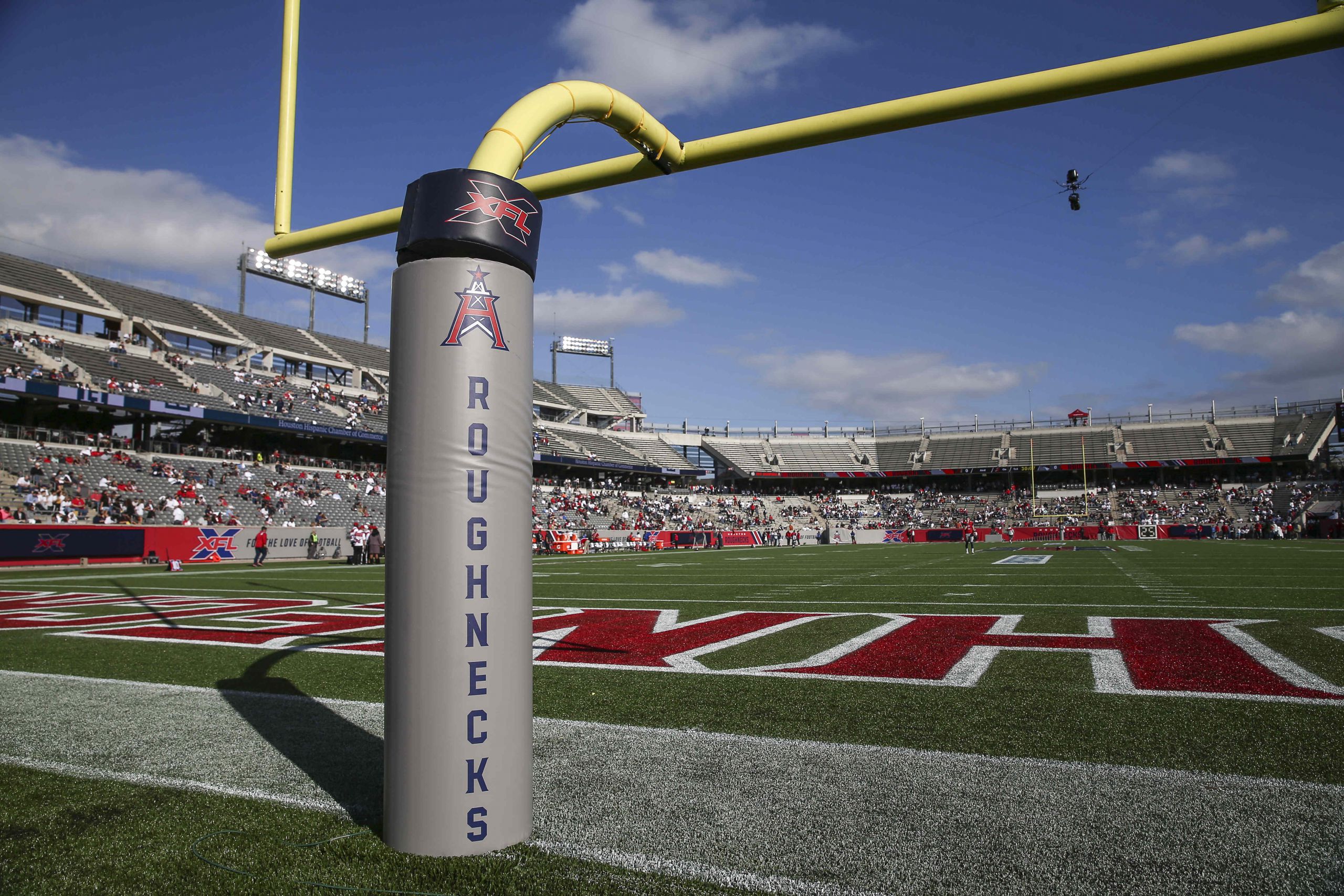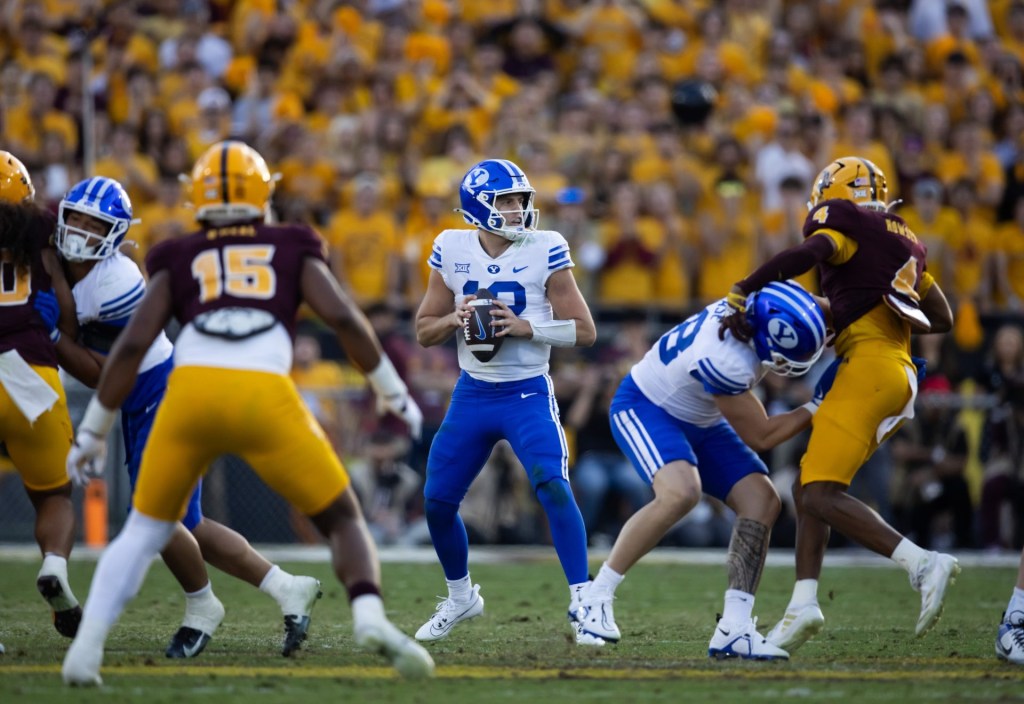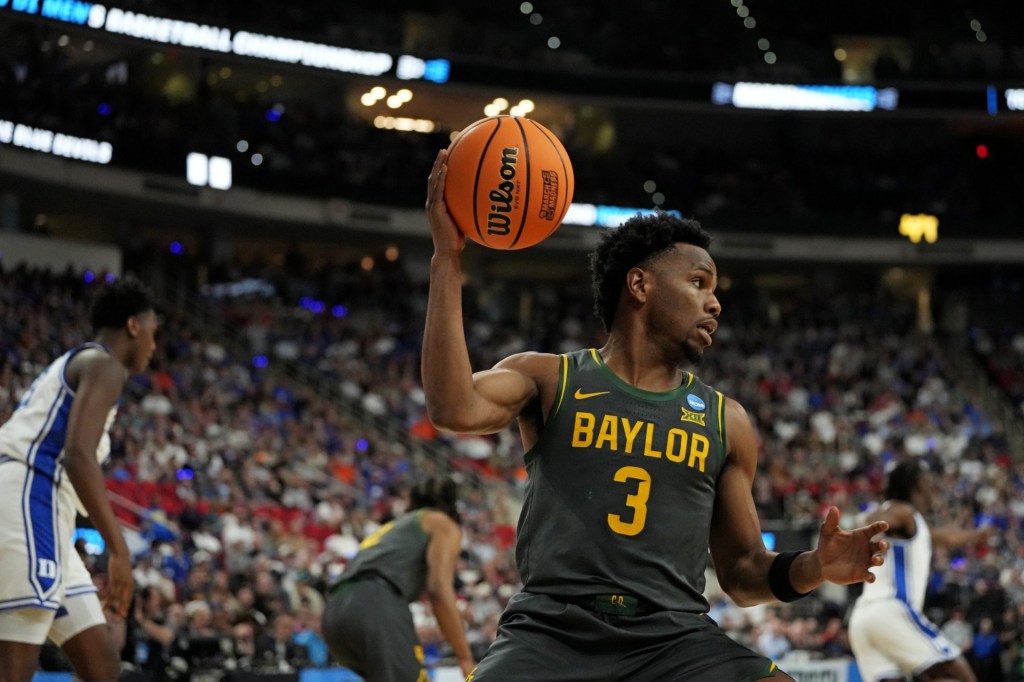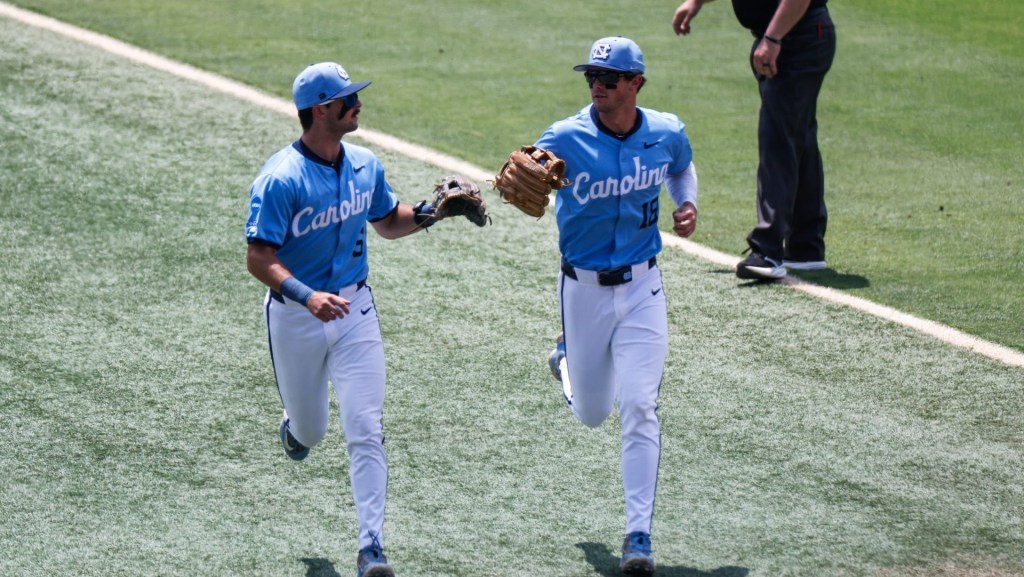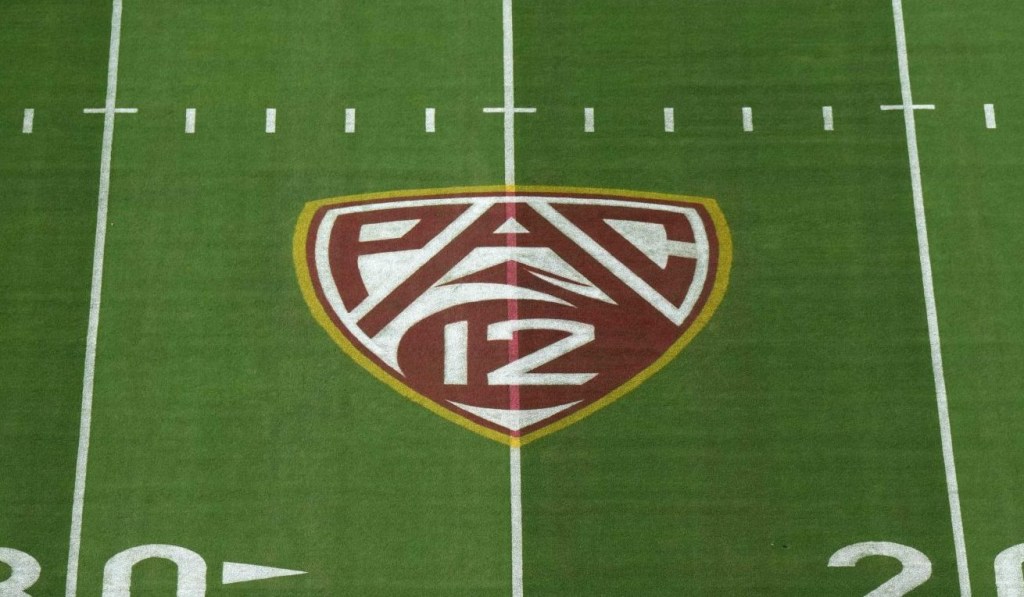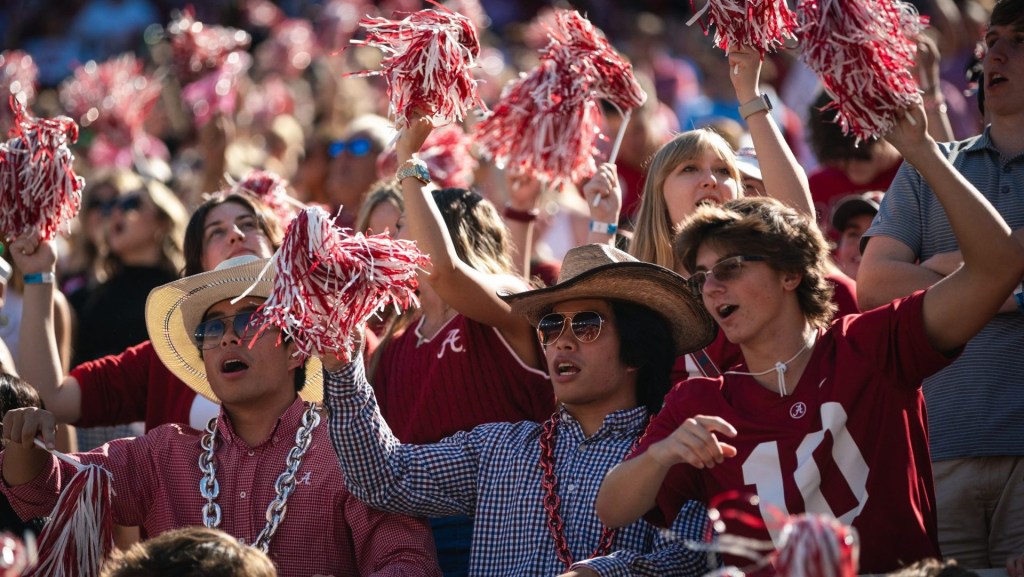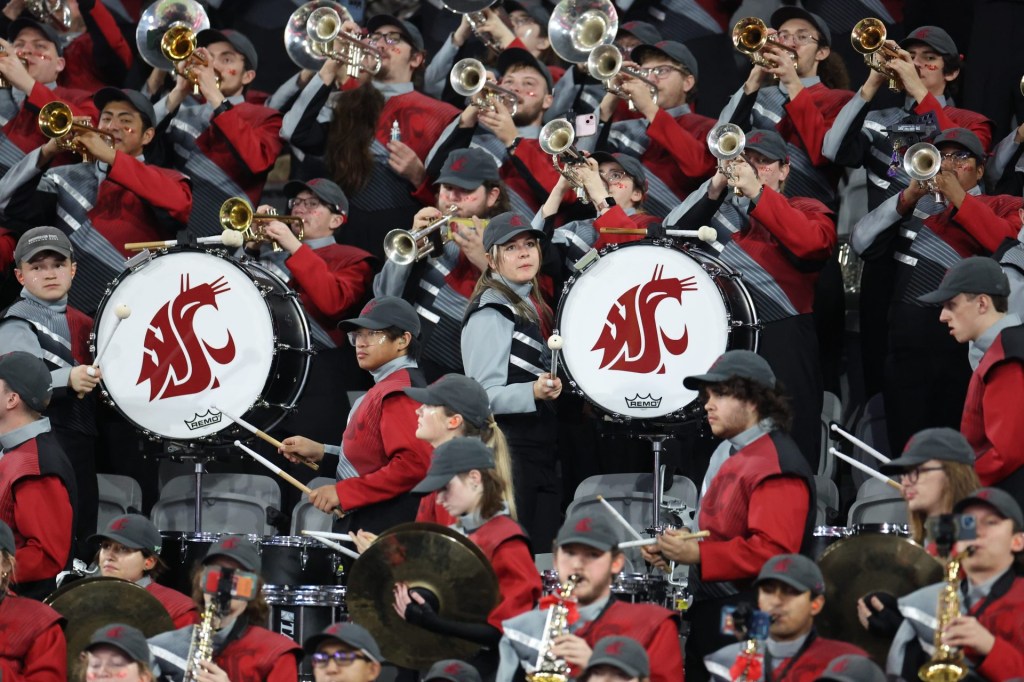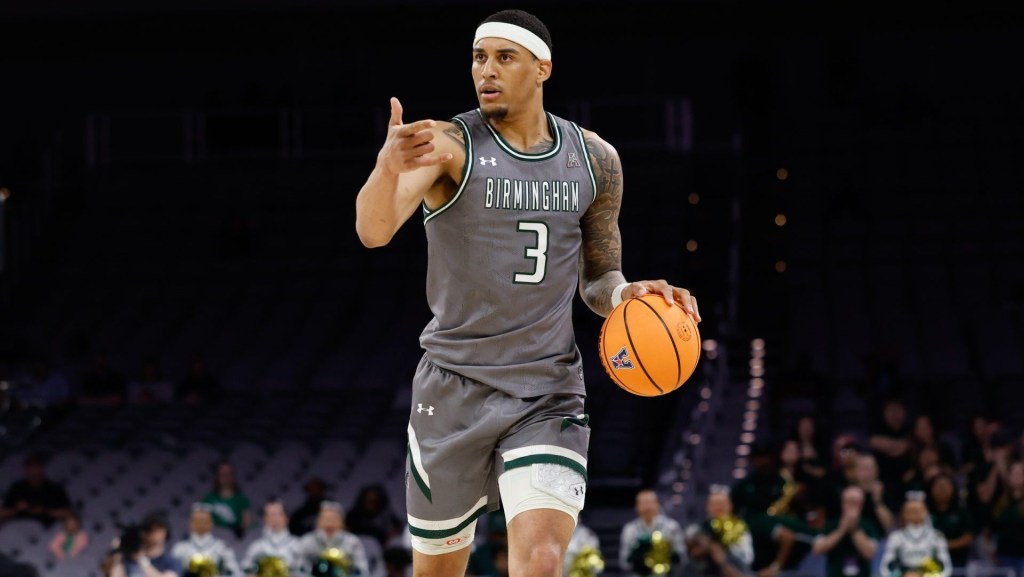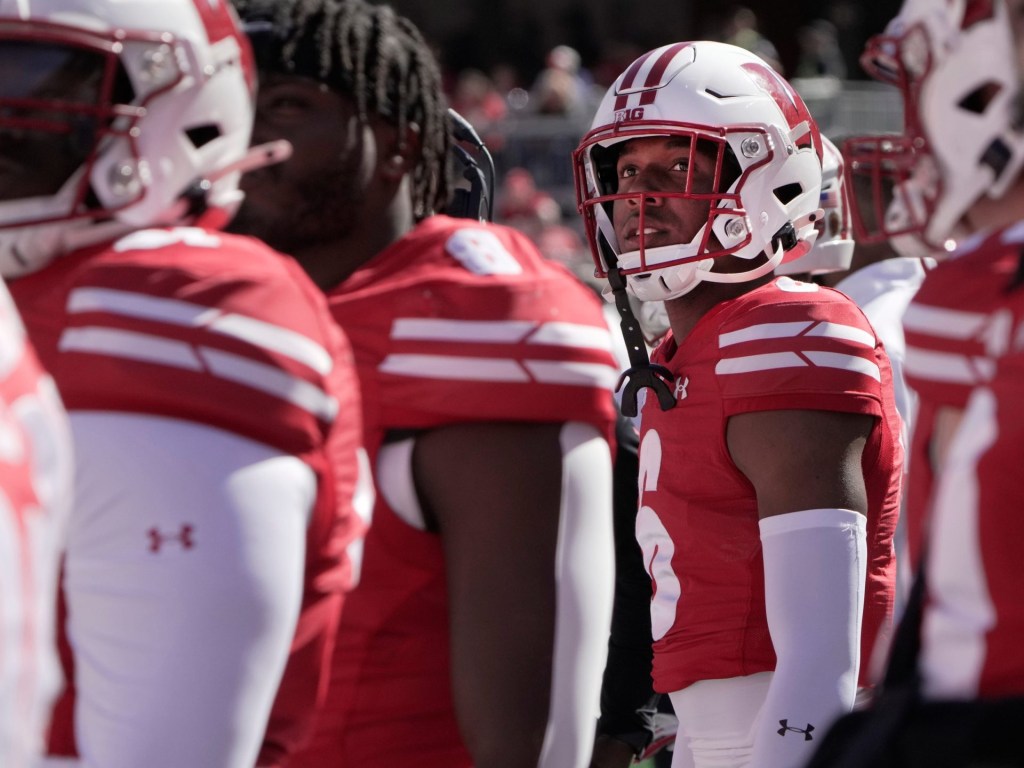The XFL’s Roughnecks have made their home in the heart of southeast Texas at the University of Houston’s TDECU Stadium. The partnership promised financial upside for both parties, but the benefits the university has seen already have been better than the Cougars imagined.
TDECU Stadium got its first glimpse of Houston’s new hometown team in January when the entirety of the XFL came to the city for training camp, which was expected to spur close to $7 million in revenue for the host city, according to Houston Mayor Sylvester Turner. Teams were spread out throughout several facilities, with the university’s campus serving as camp’s pseudo-headquarters as well as the location of the Roughnecks’ training.
The first bit of additional benefit came soon after camp in the form of facility enhancements when the XFL helped the university fund a new field at TDECU. Replacing the turf had been a project on the school’s to-do list, but wouldn’t have been completed for two or three more years until other capital projects were prioritized, athletic director Chris Pezman said.
With the fledgling league splitting the cost, the project was tackled within a matter of days.
The gridiron wasn’t the only area to get a boost. The XFL also put WiFi in the lower bowl of the stadium to enhance the fan experience and support the venue’s in-seat concession service.
With those upgrades made, the two parties were able to begin preparing for the regular season with two separate financial agreements – one covers the Roughnecks’ five regular-season home games, while a second covers the practice and training facility agreement, which includes conversion of the Cougars’ locker rooms, functional space and team meal costs.
In the games agreement, the XFL pays the University of Houston an undisclosed base rent amount for facility use for home games and then receives a portion of the ancillary revenue, including parking, food and beverage, and merchandise. Revenue from ticket sales and the gate all go to the XFL, although Houston does receive half of the online processing and ticket fees.
While a portion of ticket fees might sound inconsequential, Houston’s 40,000 person stadium welcomed a league-high 17,815 attendance during week one, and sales indicators for week two are already outpacing that figure. For comparison, the university saw an average of 25,518 fans at five home games this season – which was the lowest for a home slate since 1962.
Playoff qualification would mean added home games for Houston, too, and added attendees and sales.
READ MORE: Slow and Steady Is XFL Teams’ Approach to Growing Fanbase, Selling Tickets
“We took a sort of a different approach to this where they split revenues with us,” Pezman said. “Not a lot of venues will do that, but just off the initial event last weekend, we saw that it works. For us, we’re getting part of something that wouldn’t have happened otherwise. If we didn’t have the XFL here, there’s not another event of that size or magnitude where we could generate a meaningful revenue stream, so it’s worth it to us to give them some of that back.”
And 18 months after talks began between the university and the XFL, and one training camp and one week of regular season play into their five-year agreement, Houston is hopeful they’ll have a little bit more than they initially thought.
“We’ve exceeded expectations, and, from what I’ve seen, it’s going to be substantial,” Pezman said. “When I got here [two years ago], one of our objectives was to enhance our special event revenue stream. We were doing about $200,000 a year, and this year we’re going to be in excess of $1.4, $1.5 [million] – and that’s conservative. That’s new money for us. That allows us to reinvest back into all of our programs. That revenue stream is very substantial for us.”
Pezman attributes a “bulk” of that increased revenue to the partnership with the XFL. The school will use the newfound funds to enhance the student-athlete experience, add to the salary pool for coaches, and invest in maintenance and upkeep of the school’s athletic facilities.
Houston’s athletic department will have a unique opportunity to capitalize on the additional income as the only college that will benefit from the XFL’s arrival this season. A majority of the other teams play in municipal MLS or NFL stadiums. The exception are the Dallas Renegades, who play at Globe Life Park, the Texas Rangers’ former ballpark, and the St. Louis Battlehawks, who play at The Dome at America’s Center, where the Rams played during their stint in the Missouri city.
They’ll also have the opportunity to capitalize on the championship game, which the XFL will play in Houston on April 26.
READ MORE: Betting Companies Embrace XFL Opportunity Despite Uncertainty
“Being able to serve as the inaugural home, site, and facility for that championship game is not just about the financial impact,” deputy athletic director David Tagliarino said. “There’s tremendous value in the exposure and visibility that this will bring to the University of Houston, our campus, and our facilities. Because you’ve got kind of a new fanbase coming here. The majority of people we saw in week one was their first time down here and on our campus.”
And, as Houston’s mayor noted when training camp came to town, the upside extends beyond campus boundaries.
“There’s a lot of things here that at the end of the day will benefit us,” Tagliarino said. “Not just our university and our athletics department but the city of Houston and the visibility and exposure it brings on the city and what we stand for.”
